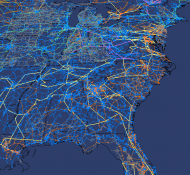
This type of analysis uses Bayes’s theorem, named after Thomas Bayes, an 18th-century English statistician and minister. To get a better handle on Bostrom’s simulation argument, Kipping decided to resort to Bayesian reasoning. “Musk is right if you assume one and two of the trilemma are false,” says astronomer David Kipping of Columbia University. More recently, Elon Musk gave further fuel to the concept that our reality is a simulation: “ The odds that we are in base reality is one in billions,” he said at a 2016 conference. And the idea has deep roots in Western and Eastern philosophical traditions, from Plato’s cave allegory to Zhuang Zhou’s butterfly dream.
#Power world simulator t movie
And third, the probability that we are living in a simulation is close to one.īefore Bostrom, the movie The Matrix had already done its part to popularize the notion of simulated realities. Second, even if humans make it to that stage, they are unlikely to be interested in simulating their own ancestral past. Given this scenario, his simulation argument showed that at least one proposition in the following trilemma must be true: First, humans almost always go extinct before reaching the simulation-savvy stage. In 2003 Bostrom imagined a technologically adept civilization that possesses immense computing power and needs a fraction of that power to simulate new realities with conscious beings in them. (A caveat to that conclusion is that there is little agreement about what the term “consciousness” means, let alone how one might go about simulating it.) But the study also demonstrates that if humans were to ever develop the ability to simulate conscious beings, the chances would overwhelmingly tilt in favor of us, too, being virtual denizens inside someone else’s computer.

Now a new analysis shows that the odds that we are living in base reality-meaning an existence that is not simulated-are pretty much even. Others have attempted to calculate the chance of us being virtual entities. Some have tried to identify ways in which we can discern if we are simulated beings. But ever since Nick Bostrom of the University of Oxford wrote a seminal paper about the simulation argument in 2003, philosophers, physicists, technologists and, yes, comedians have been grappling with the idea of our reality being a simulacrum. “Before they can program it,” the astrophysicist said, delighting at the thought. “Maybe that’s why we can’t travel faster than the speed of light, because if we could, we’d be able to get to another galaxy,” said Nice, the show’s co-host, prompting Tyson to gleefully interrupt. If so, the simulation would most likely create perceptions of reality on demand rather than simulate all of reality all the time-much like a video game optimized to render only the parts of a scene visible to a player. The show’s host Neil deGrasse Tyson had just explained the simulation argument-the idea that we could be virtual beings living in a computer simulation.

But comic Chuck Nice managed to do just that in a recent episode of the podcast StarTalk. It is not often that a comedian gives an astrophysicist goose bumps when discussing the laws of physics.


 0 kommentar(er)
0 kommentar(er)
